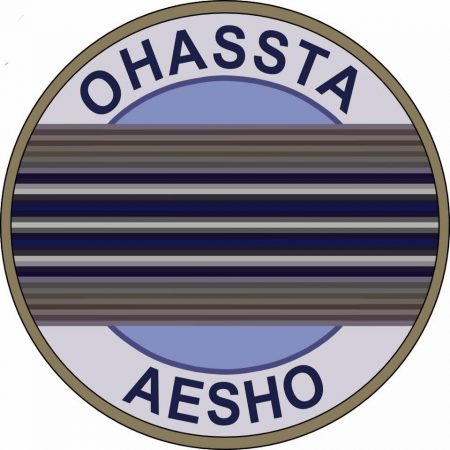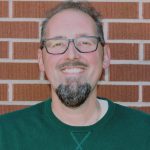
By Rachel Collishaw
My first summer as OHASSTA president has been a busy one! A new provincial government, a successful Summer Institute in Sudbury, getting the conference ready for registration and participating in national conversations with History and Social Science teachers across Canada has given me lots of things to do and think about. I am most grateful for the relationships that I have been building with OHASSTA members, with Indigenous partners and teachers, with post-secondary history and education partners and with history teachers across Canada. I am working hard to bring your voice and perspective into all of these conversations, so please continue to reach out and let me know your concerns.
The summer started with the abrupt cancellation of the Phase Two Truth and Reconciliation writing sessions on Friday, July 6th. The sessions were set to begin in Toronto on Monday the 9th of July. Few explanations were given. Working with FNMIEAO, I sent an email to all OHASSTA members expressing our disappointment and concern over these last-minute cancellations. There was quite a lot of media attention, and many teachers are continuing to use the hashtag #TeachersforTRC on Twitter to press for the resumption of this important work. I was blown away by the swift, coordinated and overwhelming response from the Indigenous community to this action.
Provincial Matters
This was phase 2 of a planned, 3-phase response to the TRC Calls to Action (#62 and #63). I know that many of you have been doing your own learning over the summer to get ready to implement phase 1 (History grade 4-10) and phase 2 would have enriched not only our senior history and social science courses, but geography, civics and Kindergarten to grade 3 curriculum. My understanding from the ministry of education is that resources developed in partnership with Indigenous teachers, communities and organizations will soon be available to support you in delivering the revised curriculum. We will make sure to let you know in Rapport, on the website, Twitter, Facebook and email when they are out. In the meantime, we have developed some fantastic resources in partnership with FNMIEAO for History and Civics.
In addition to the TRC cancellation, the Ministry also quietly cancelled the e-learning course writing work, in particular, CHC2D and CHC2P were going to be revised to align with the 2018 curriculum, and this work was also cancelled. Every day, it seems, there has been an announcement of some kind from the provincial government that will have wide-reaching impacts on our work. While there had been much attention given to the withdrawal of the health curriculum, we know that much of our work as social science teachers gives students a safe space to learn about inclusiveness, equity and identity. We will continue this work to support all of our students to find their place in our society. Education for history and democracy is at a critical juncture and we will have an important role to play in the months and years ahead.
Hazel Fox-Recollet (Anishinaabe) sharing medicine wheel teachings with summer institute 2018 participants in Sudbury. Hazel works with the Rainbow DSB supporting Indigenous students.
Truth and Reconciliation Summer Institute
On a positive note, Jan Haskings-Winner and I, together with Hazel Fox-Recollet, Anishinaabe-kwe from Wikwemikong, ran our most successful Summer Institute yet! We gathered with teachers from across Ontario for 3 days and shared, learned and worked together to deepen our understanding of Indigenous history, our relationships and our knowledge about culture and contemporary Indigenous perspectives. You can catch up on some of the action by searching the hashtag #ohasstaSI2018. We also got some coverage on CBC radio in Sudbury and in Kitchener-Waterloo, and we are pleased to be keeping history and reconciliation in the news! I cannot express enough my gratitude to my co-presenters and all of the participants for bringing yourselves fully to the learning and engaging deeply in the work of Truth and Reconciliation. Many participants created lesson plans that they have generously agreed to share on the OHASSTA website. We hope that these will be helpful to you in your work!
VoicED Radio
One of the most enjoyable parts of my summer has been developing a partnership with Stephen Hurley, the founder and voice of VoicED Radio, an internet radio station that aims to bring educators together to talk about our work. Sandy Kritzer, Jan Haskings-Winner and I had a conversation with Stephen at the beginning of the summer to talk about our experiences with the OTF Summer Institutes. In August, Stephen and I had another conversation about the state of history education this summer, and shared some highlights of the November OHASSTA Conference. I’ll be reaching out to OHASSTA workshop presenters soon to come on board and have more conversations on VoicED Radio as we get ready for the conference. Stay tuned!
Annual Conference
Our annual conference this year is back in Toronto at the lovely Four Points Sheraton Toronto Airport, November 15-16th. I am looking forward to connecting with all of you in person and I hope you will be able to join us. Registration is now live, and we’ve got a fantastic slate of workshop presenter and speakers, including Dr. Susan Dion and Piita Irnik to help us explore the conference theme: The Next 150. We will have our rich resource fair and lots of networking opportunities. I am especially excited because we are partnering again this year with the Association for Canadian Studies (ACS) and they are bringing in educators from across Canada at secondary and post-secondary levels. This is a great opportunity for us to find out what’s happening in other places and to strengthen history and social science education at the national level.
On the Ottawa Aqua Taxi with history and social studies teacher representatives from across Canada at the National History Educators Meeting in July 2018. (photo credit Greg Peters, New Brunswick) Left to right: Brett Kirk – Saskatchewan, Ian Coffin – PEI, Wendy Driscoll – Nova Scotia Rachel Collishaw – Ontario, John Tidswell – Alberta, John Piper, Ontario, Brent Toles – Saskatchewan, Ashley Henrickson, Alberta (Lethbridge Museum), Kevin Lopuck – Manitoba
National Conversations
OHASSTA was invited this summer to the National History Educators Meeting in Ottawa, with Canada’s History Society. They brought together educators from across Canada to talk about ways to work together. I attended along with AESHO president Jean-François Bertrand and webmaster John Piper. We got to see the final presentations of the Historical Thinking Summer Institute participants and we were invited to What’s In a Name? The Debate over Public Commemorations in Canada, where we heard from a diverse and distinguished panel and gained valuable insights into the conversations that are playing out across the country. We then worked over the next couple of days to recommend projects that would bring us together and strengthen history education across Canada.
In August, I was invited to attend, on behalf of OHASSTA, a meeting in Edmonton with Dr. Carla Peck and Dr. Lindsay Gibson and several partners to provide input and teacher perspectives on a large SSHRC partnership grant called: Thinking Historically for Canada’s Future. OHASSTA has agreed to be a partner on this grant which, if successful, will run for 7 years and proposes to research the state of history education in Canada. Several questions kept bubbling up over the two days: What does Historical Thinking look like now in the classroom? What are teachers’ needs in teaching Indigenous histories? What are effective ways to assess critical thinking? In the age of populism, debates over commemorations and Truth and Reconciliation, these questions are more pressing than ever, and we hope that this research can be done and that we will see positive outcomes for teachers and students.
Another national project that I have been personally following is the VoicED summer book club, which had a “Canada Reads” style debate to choose a book that all educators need to read. The book chosen was Tanya Talaga’s Seven Fallen Feathers. If you have not yet read this book, it is the story of the deaths of seven teens in Thunder Bay and it is the story of truth and reconciliation in Canada. You can catch up on the summer reading group – we shared our thoughts on Facebook, Twitter, blogs and on a weekly podcast. All of the podcasts can be found online at VoicED Reads.
Elections Canada
As some of you may know, I am starting a full time secondment this September with Elections Canada. I will continue in my role as OHASSTA president for the remainder of my 2-year term. I have been working with them over the last year to develop a new suite of learning resources which launch(ed) September 19th. These are free and bilingual, inquiry-based activities with hands-on activities, lesson plans, and videos to engage students in conversations about elections and democracy. In Ontario and Manitoba, we are doing a special pilot project to support teachers with professional learning in those regions. We’ve hired experienced TDSB teacher and Skeoch-Award winner, Zoe Flatman (@flatwoman) to provide regional support for teachers in the GTA. It’s a pilot, so we’re still shaping what that looks like, but we’re hoping that you are going to let us know how we can support you!
Wishing you all the best as you start your classroom!
Sincerely,
Rachel Collishaw

